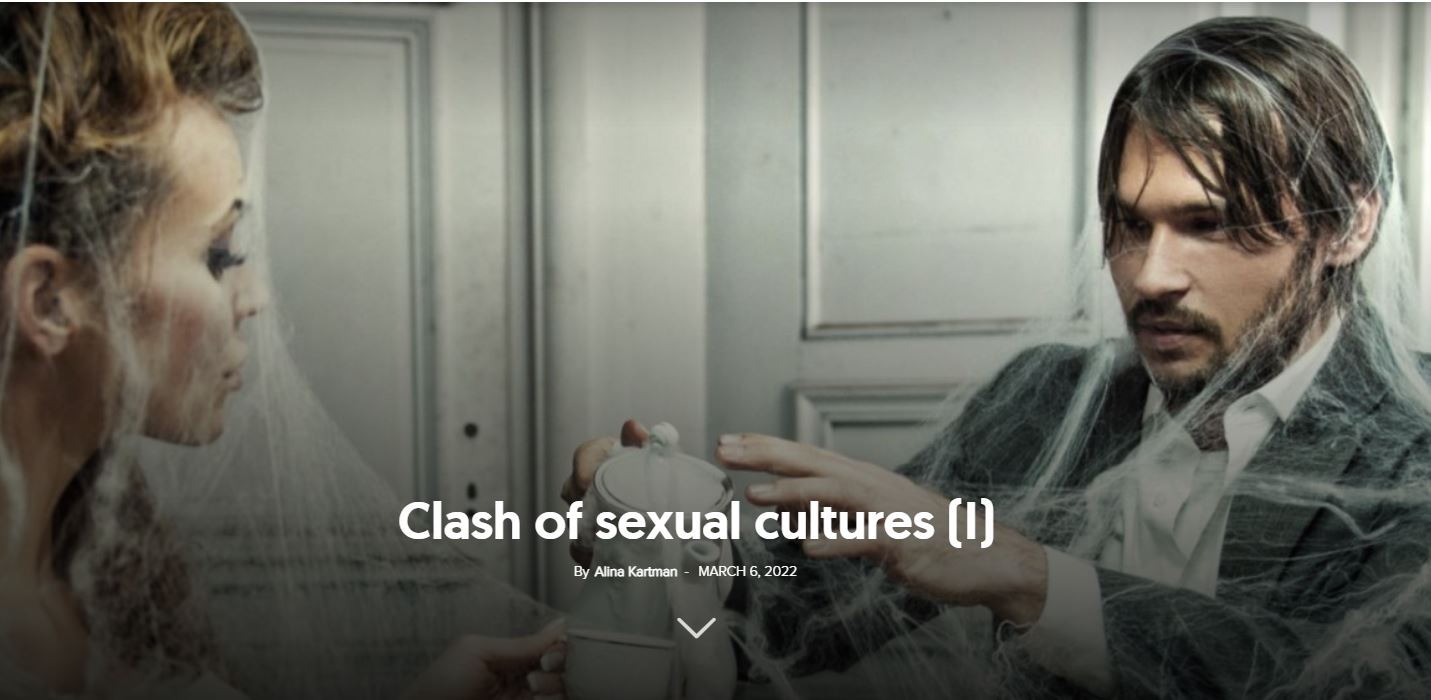Jessica was 19 when she had to tell her parents, both practicing Christians, that she was pregnant. That moment generated a real earthquake in the young woman’s family who, together with her boyfriend at the time, had been strongly involved in the purity movement, an ideology that promotes sexual abstinence until marriage, for religious reasons.
Six years later, when she was invited to film a documentary on the purity oath, Jessica dissolved into tears when she recalled the terrible guilt she felt when she realized that she had broken her promise and that she had deeply disappointed her parents.
Her story has no happy ending. Her boyfriend had asked her to marry him and she had agreed, but the couple broke off their engagement after Jessica lost her pregnancy due to complications. The young woman said that she was relieved by their relationship having ended, because it had become obvious that she and her fiancé were no longer compatible. However, the relationship with her mother has not been the same since then. Jessica tearfully says that her mother no longer trusts her decisions and sees her as “half-human.”
Nevertheless, “half-human” sounds a little happier than “damaged goods,” as Elizabeth Smart thought of herself, after a man abducted her from her parents’ house and raped her.
Raised in the Mormon faith, one of the denominations that promotes chastity before marriage, Smart confessed that she felt worthless after her experience and that she had problems with returning to society for months on end, struggling with the public perception on premarital sex.
“I remember in school one time, I had a teacher who was talking about abstinence. And she said: ‘Imagine you’re a stick of gum. When you engage in sex, that’s like getting chewed. And if you do that lots of times, you’re going to become an old piece of gum, and who is going to want you after that?’ Well, that’s terrible. No one should ever say that,” Elizabeth said in an interview for Slate.com. “But for me, I thought, ‘I’m that chewed-up piece of gum.’ Nobody re-chews a piece of gum. You throw it away. And that’s how easy it is to feel you no longer have worth. Your life no longer has value.”
How can one cure the obsession with sexual purity?
No one forced Jessica to give up her chastity vow. Elizabeth, on the other hand, had no choice. Although very different, the stories of the two young women still have one thing in common: terrible guilt. This same guilt is also known to many other young people, educated to be pro-abstinence in Protestant Christian communities, who have given up this principle.
Even though one of the truths that Protestant denominations have in common is that there is no hierarchy of sins, the community reacts differently when faced with the sin of “adultery” (whether pre- or post-marital) than it does when faced with lying, for instance.
The sexual purity rhetoric has begun to be challenged by both conservative and progressive voices, who believe that an ideology that promotes abstinence conveys, at the same time, an unbalanced and distorted picture of sexuality.
Oppression in the name of purity
Richard Beck, in his book Unclean, focuses on the metaphors used to delimit sexual sin, especially for women. Beck, who is a professor and chair of the Psychology Department at Abilene Christian University, argues that the metaphor of purity imports a “psychology of contamination into our moral and spiritual lives” and that this contamination is seen as a permanent state beyond any possibility of restoration.
The way we relate to sexual purity needs to change. Teaching young people about integrity in a way that prevents the creation of a climate of guilt and intolerance requires that Christian opinion leaders (whether pastors, youth leaders, or other people with responsibility) discuss sexuality constructively, not restrictively, in order to instil dignity in young people, not inhibition.
“It’s got to be way more holistic,” says American author Anna Broadway, pointing to the need to emphasize the ideal of “self-giving love” instead of the ideal of abstinence, which would give a positive nuance to the idea of premarital chastity. People should focus, she says, not on bans, but on enriching and building romantic relationships within the boundaries imposed by principles.
Author Rachel Held Evans also points to the need to separate the evangelical purity culture from individual identity. She advocates for giving up messages that obsessively convey the idea that “having sex with someone changes your very identity forever, making you unwanted and disgusting.”
What to do with guilt?
Beyond the changes needed at community level to cure the purity obsession and replace it with sound, balanced principles that promote the integrity and dignity of imperfect believers without exception, those believers who have not lived up to their own ideals need to be supported to regain their balance.
The stigmatization of those who have committed a sexual sin is a deviation from biblical teaching. In the passage that describes the time when the city’s leading believers, the Pharisees, catch a woman just as she was committing adultery and intend to stone her, Jesus strongly advises them to evaluate their own lives before administering justice.
In this episode, Christ does not treat sexual sin as a more disturbing or serious sin than others. The words He says to the woman are “go and sin no more,” a message similar to the one sent to a paralytic after He healed him.
“Sex is not the worst sin God is willing to forgive and forgive over and over again,” Christian author Caryn Rivadeneira says in an editorial for Christianity Today.
Guilt is effective only when the believer does not remain stuck in it. Remorse should be just one step, so as not to become pathological. This is because guilt is an indispensable element of a larger process of forgiveness: the restoration of the human spirit according to the divine pattern. In this equation, guilt is needed as a catalyst to push the believer closer to God, not further, as is often the case due to stigma.
The Bible is generous in asserting God’s willingness not only to forgive the human who has sinned, but also to help them grow after their repentance. Sexual sin is no exception. (“Though your sins are like scarlet, they shall be as white as snow; though they are red as crimson, they shall be like wool” – Isaiah 1:18)
Moreover, Scripture likens any disobedience to God to an adulterous relationship. Even in this context, the book of Hosea in the Old Testament is a very powerful metaphor for God’s love for fallen mankind. The book tells how God commands the prophet Hosea to marry a prostitute and endure her betrayal so that He can eloquently convey His divine message to the sinful Jewish people: God wants them back even after what happened because He loves them. A message that continues to be valid today.
Alina Kartman majored in Communications and Public Relations, but opted for a career in journalism. Having published more than 1,500 pieces of writing over her 13 years of media activity, Alina has senior editorial experience. She is part of the team who advanced semneletimpului.ro, the platform for the Signs of the Times magazine in Romania. She is currently pursuing a Master’s degree in Programs and Investment Management.




















